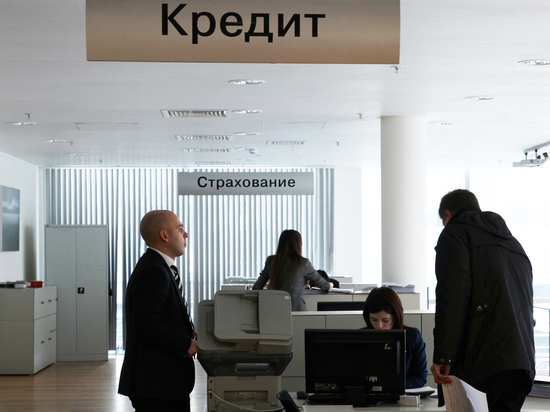The Russians were told when you can take a break in the payment of loans
[ad_1]

They want to make the mechanism for receiving vacations on any type of consumer loans unlimited
The Ministry of Finance proposed to extend the possibility of obtaining credit holidays for another 6 months – until March 31, 2023. The version of the resolution containing this initiative was published on September 19 on the portal of draft regulatory legal acts. Meanwhile, a group of senators and deputies on the same day submitted to the State Duma a draft law on providing citizens with credit holidays on consumer loans in general at any time, as is now happening with mortgage loans. At the same time, it is proposed to increase the amount of loans for which borrowers have the right to apply to banks for such a service. Experts spoke about the pros and cons of the new MK bill.
According to the legislation in force since March 22, credit holidays can only be issued until September 30 of this year. It is realistic to do this for both an ordinary person and an individual entrepreneur (IP). The duration of this benefit is 6 months. Now, a limit of 300,000 rubles has been set for individual consumer loans, 350,000 rubles for individual entrepreneurs, 100,000 rubles for credit card debts, and 700,000 rubles for buying a car. For the first time in Russia, this norm was introduced back in the 2020 pandemic, but then extended by the authorities. Only borrowers whose income officially decreased by 30% could issue a credit holiday. The proposed bill specifies that the holidays will apply to loans with a limit set by the government, but the authors want to expand them further. Thus, it is proposed to introduce a limit for credit cards in the amount of 150 thousand rubles (an increase of 1.5 times), for car loans – 1.6 million rubles (an increase of almost 2.3 times); for all other consumer loans – 450 thousand rubles (an increase of 1.5 times). It will be possible to use credit holidays only once during the period of the loan, but they can apply to all loans that a citizen has.
The increase in the limits in the new version of the law may be due to an attempt to soften the very conservative conditions of the previous version of the legislation. “It is possible that by the end of 2022, the number of Russians who have received the right to credit holidays will be less than in the pandemic year 2020, since the conditions for granting credit holidays look quite tough: for example, credit card debt should not exceed 100 thousand rubles. rubles,” says Natalya Milchakova, Leading Analyst at Freedom Finance Global. The data available to the Central Bank of the Russian Federation already now indicate this. So, in March-June 2022, citizens filed 1.2 million applications for loan restructuring, including loan holidays. This is half of what it was in the first four months of the pandemic. The Bank of Russia noted that the number of applications received from citizens has already decreased by 1.6 times – from 438 thousand in March to 267 thousand applications in June. “In practice, less than a third of those who wished could take advantage of the designated credit holidays,” says Polina Gusyatnikova, senior managing partner at PG Partners law firm. “Apparently, given these factors, the legislators decided to correct the situation.”
However, experts argue that for all the usefulness of the new legislation, this initiative also has weaknesses. According to the financial ombudsman of the Association of Russian Banks Pavel Medvedev, the same “arithmetical error” is made in all bills on credit holidays. Poor and rich borrowers do not differ in it. “If a person had an income of 1 million rubles a month and it fell by 30%, that is, now it is 700 thousand rubles, then most likely such a client will survive this and will be able to continue paying his debts,” the expert explains. “And if a person had an income close to the minimum wage and he fell by 10% or even less, then he will already be in a difficult situation and will not be able to fulfill his loan obligations.” It is necessary that another formula be applied in the legislation: the lower a person’s earnings, the smaller the relative drop in his income should allow him to resort to credit holidays. For example, if a borrower for a family has a monthly income of 1 million rubles, then he is allowed to issue credit holidays only if it has decreased by 90%. And for low-income borrowers, it is enough to reduce income by 10% for the same procedure, the expert pointed out.
[ad_2]
Source link






